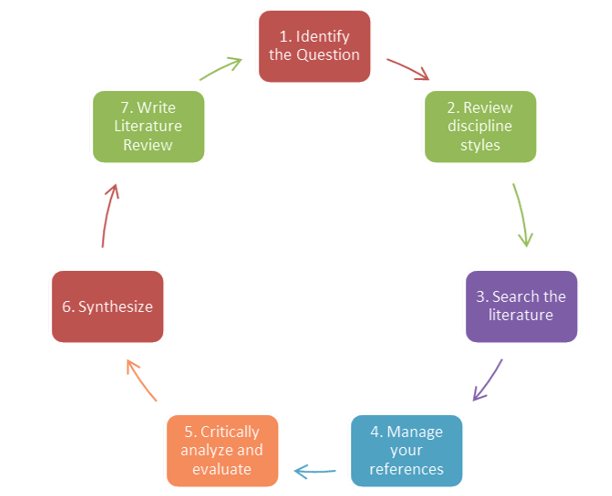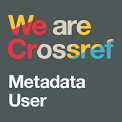Islamic Religious Education Learning Innovation: The Role and Challenges of the Joyful Learning Approach
DOI:
https://doi.org/10.51574/ijrer.v4i4.3764Keywords:
Character, Joyful Learning, Islamic Religious Education, Learning Innovation, Learning MotivationAbstract
Islamic Religious Education learning is still largely dominated by lectures and memorization methods, which create a monotonous classroom atmosphere and lack active student engagement. This condition affects learning interest and the effectiveness of internalizing religious values. This study aims to examine the application of Joyful Learning as an innovation in Islamic Religious Education learning. The method used is a literature study with a descriptive qualitative approach with a time span of the last 10 years based on Google Scholar. Data were collected through a review of various relevant scientific literature sources, then analyzed thematically. The results show that Joyful Learning can increase student interest, understanding, and engagement through the use of methods such as educational games, digital media, group discussions, and experiential learning. Despite its great potential, the implementation of Joyful Learning faces various challenges such as limited facilities, teacher readiness, and classroom dynamics. Solutions offered include teacher training, the use of simple media, and collaboration with parents and the school community. The conclusion of this study is that Joyful Learning has a strategic role in reconstructing Islamic Religious Education learning to be more contextual, enjoyable, and meaningful. Students who are not only intellectually intelligent, but also have noble character and love the teachings of Islam.
References
Aeni, M. (2025). Strategies for Internalizing PAI Values in Shaping Students' Character. Al-Islamiyah: Jurnal Pendidikan Islam, 1(1), 14-28. https://doi.org/10.18095/al-jpi.2v.02
Alamsyah, E., & Ahwa, D. F. (2020). Implementasi Metode Joyfull Learning pada Pembelajaran Pendidikan Agama Islam di Sekolah Menengah Pertama Alam Banyuwangi Islamic School. AL-ADABIYAH: Jurnal Pendidikan Agama Islam, 1(1), 59–76. https://doi.org/10.35719/adabiyah.v1i1.12
Alam, A., & Mohanty, A. (2023). Educational technology: Exploring the convergence of technology and pedagogy through mobility, interactivity, AI, and learning tools. Cogent Engineering, 10(2), 2283282. https://doi.org/10.1080/23311916.2023.2283282
Andayanie, L. M., Adhantoro, M. S., Purnomo, E., & Kurniaji, G. T. (2025). Implementation of Deep Learning in Education: Towards Mindful, Meaningful, and Joyful Learning Experiences. Journal of Deep Learning, 47-56. https://journals2.ums.ac.id/index.php/jdl/article/view/11157
Aripin, S. A. S., & Nurdiansyah, N. M. (2022). Modernization of Education: A New Approach and Method in Learning Islamic Religious Education. TADRIS: Jurnal Pendidikan Islam, 17(1), 100-117. https://doi.org/10.19105/tjpi.v17i1.5916
Aseery, A. (2024). Enhancing learners’ motivation and engagement in religious education classes at elementary levels. British Journal of Religious Education, 46(1), 43-58. https://doi.org/10.1080/01416200.2023.2256487
Ashari, M. K., Rohmah, A. N., & Yudi, U. (2023). Joyful Learning with App-Based Interactive Quizzes in Senior High Schools in the Digital Era. Cendekia, 15(02), 210-228. https://doi.org/10.37850/cendekia.v15i02.528
Azkiya, H., & Istiqomah, S. (2025). Penerapan Metode Joyful Learning dalam Meningkatkan Motivasi Belajar Siswa. 9. https://doi.org/10.31004/basicedu.v9i2.9770
Azmi, F. U., & Gusmaneli, G. (2025). Implementasi Strategi Pembelajaran Kontekstual dalam Pendidikan Agama Islam untuk Membentuk Karakter Siswa. Hikmah: Jurnal Studi Pendidikan Agama Islam, 2(2), 01-12. https://doi.org/10.61132/hikmah.v2i2.787
Bhakti, C. P., Ghiffari, M. A. N., & Salsabil, K. (2019). Joyful learning: Alternative learning models to improving student’s happiness. Jurnal Varidika, 30(2), 30-35. https://doi.org/10.23917/varidika.v30i2.7572
Candira, D., Adekamisti, R., Harmi, H., Ifnaldi, I., & Ristianti, D. H. (2025). Evaluasi Proses Pembelajaran Pendidikan Agama Islam di Sekolah Menengah Pertama Negeri. JIIP-Jurnal Ilmiah Ilmu Pendidikan, 8(6), 5725-5733. https://doi.org/10.54371/jiip.v8i6.7991
Chen, M. R. A., Hwang, G. J., & Chang, Y. Y. (2019). A reflective thinking‐promoting approach to enhancing graduate students' flipped learning engagement, participation behaviors, reflective thinking and project learning outcomes. British Journal of Educational Technology, 50(5), 2288-2307. https://doi.org/10.1111/bjet.12823
Dinham, A., & Shaw, M. (2017). Religious literacy through religious education: The future of teaching and learning about religion and belief. Religions, 8(7), 119. https://doi.org/10.3390/rel8070119
Erwin, E. J., Bacon, J. K., & Lalvani, P. (2023). It’s about time! Advancing justice through joyful inquiry with young children. Topics in Early Childhood Special Education, 43(1), 71-82. https://doi.org/10.1177/0271121420988890
Feriyanto, F., & Anjariyah, D. (2024). Deep learning approach through meaningful, mindful, and joyful learning: A library research. Electronic Journal of Education, Social Economics and Technology, 5(2), 208-212. https://doi.org/10.33122/ejeset.v5i2.321
Ferreira, M., Martinsone, B., & Talić, S. (2020). Promoting sustainable social emotional learning at school through relationship-centered learning environment, teaching methods and formative assessment. Journal of Teacher Education for Sustainability, 22(1), 21-36.
Fung, D. C. L., To, H., & Leung, K. (2016). The influence of collaborative group work on students’ development of critical thinking: The teacher’s role in facilitating group discussions. Pedagogies: An International Journal, 11(2), 146-166. https://doi.org/10.1080/1554480X.2016.1159965
Gasser, L., Grütter, J., Buholzer, A., & Wettstein, A. (2018). Emotionally supportive classroom interactions and students' perceptions of their teachers as caring and just. Learning and instruction, 54, 82-92. https://doi.org/10.1016/j.learninstruc.2017.08.003
Haıdarı, S. M., Karakuş, F., & Koçoğlu, A. (2020). Teacher and student perspectives on safe learning climate in gifted education. Journal of Theoretical Educational Science, 13(2), 311-333. https://doi.org/10.30831/akukeg.581632
Hanif, A., Syarifudin, E., & Muhtarom, A. (2025). Integration of Religious Moderation in Islamic Education: Challenges and Opportunities in The Digital Era. Edukasi Islami: Jurnal Pendidikan Islam, 14(01), 49-66. https://doi.org/10.30868/ei.v14i01.7767
Hidayat, T., & Syahidin, S. (2019). Inovasi Pembelajaran Pendidikan Agama Islam Melalui Model Contextual Teaching and Learning Dalam Meningkatkan Taraf Berpikir Peserta Didik. Jurnal Pendidikan Agama Islam, 16(2), 115-136. https://doi.org/10.14421/jpai.2019.162-01
Hidayati, S., & Dirmaya, E. (2024). Implementation of Student Group Discussion Method to Improve Student Learning Outcomes in Islamic Education Learning at SD Negeri 091566 Bah Jambi. Journal of Indonesian Primary School, 1(4), 159-170. https://doi.org/10.62945/jips.v1i4.632
Hilman, C. (2025). Digital-based İslamic religious education: a new orientation in enhancing student engagement and spiritual understanding. The Journal of Academic Science, 2(1), 53-65. https://doi.org/10.59613/66eafx60
Irpan, I., & Sain, Z. H. (2024). The Crucial Role of Islamic Religious Education in Shaping Children's Character: Psychological and Spiritual Review. QALAMUNA: Jurnal Pendidikan, Sosial, dan Agama, 16(1), 383-392. https://doi.org/10.37680/qalamuna.v16i1.4902
Isnaniah, I. (2025). Model Pembelajaran kontekstual untuk pendidikan agama Islam di era globalisasi. Jurnal Kualitas Pendidikan, 3(1), 236-243. https://ejournal.edutechjaya.com/index.php/jkp/article/view/1361
Khalid, F., Mirza, S. S., Bin-Feng, C., & Saeed, N. (2020). Learning engagements and the role of religion. Sage Open, 10(1), 2158244019901256. https://doi.org/10.1177/2158244019901256
Lahmar, F. (2020). Islamic education: An Islamic “wisdom-based cultural environment” in a western context. Religions, 11(8), 409. https://doi.org/10.3390/rel11080409
Lintner, T., Diviák, T., & Nekardová, B. (2024). Interaction dynamics in classroom group work. Social Networks, 79, 14-24. https://doi.org/10.1016/j.socnet.2024.05.002
Mahmudi, M. B., & Arief, A. (2025). Strategi Joyful Learning dalam Meningkatkan Motivasi, Keterlibatan dan Pemahaman Konsep Peserta Didik Pada Pembelajaran Pendidikan Agama Islam. QOSIM: Jurnal Pendidikan Sosial & Humaniora, 3(1), 96-103. https://doi.org/10.61104/jq.v3i1.662
Mala, A., & Hunaida, W. L. (2023). Exploring the role of religious moderation in Islamic education: A comprehensive analysis of its unifying potential and practical applications. Jurnal Pendidikan Agama Islam (Journal of Islamic Education Studies), 11(2), 173-196. https://doi.org/10.15642/jpai.2023.11.2.173-196
Mubaroq, M. M. (2025). Joyful Learning Sebagai Pendekatan Humanis Dalam Pendidikan Agama Islam. Jurnal Pendidikan Agama Islam, Vol 3, No(2), 177–184. https://doi.org/10.56854/sasana.v3i2.455
Mufidah, Z. (2023). The Influence of Joyful Learning Strategies on Learning Outcomes of Class 3 The History of Islamic Culture MI Nurussalam Mantingan Ngawi'. Educan: Jurnal Pendidikan Islam, 7(2), 211-220. https://ejournal.unida.gontor.ac.id/index.php/educan/article/view/10445
Nadirah, S., Retoliah, R., Aniati, A., Idris, I., & Hisbullah, H. (2024). Optimizing Islamic Religious Education Learning in Elementary Schools Through Contextual Approach: A Literature Review of Curriculum and Teaching Methods. Edukasi Islami: Jurnal Pendidikan Islam, 13(03). https://doi.org/10.30868/ei.v13i03.6542
Nasucha, M. R., Khozin, K., & Thoifah, I. A. (2023). Synergizing islamic religious education and scientific learning in the 21st century: A systematic review of literature. Jurnal Pendidikan Agama Islam (Journal of Islamic Education Studies), 11(1), 109-130. https://doi.org/10.15642/jpai.2023.11.1.109-130
Ola, P., & Karim, H. A. (2024). Implementasi Metode Joyfull Learning Pada Pembelajaran Pendidikan Agama Islam Di Sd Islam Darul Makmur Sungai Rotan Batu Taba Ampek Angkek. Jurnal Citra Pendidikan, 4(1), 1594-1602.
Olsen, J. K., Rummel, N., & Aleven, V. (2021). Designing for the co-orchestration of social transitions between individual, small-group and whole-class learning in the classroom. International Journal of Artificial Intelligence in Education, 31(1), 24-56. https://doi.org/10.1007/s40593-020-00228-w
Pöntinen, S., & Räty-Záborszky, S. (2020). Pedagogical aspects to support students’ evolving digital competence at school. European Early Childhood Education Research Journal, 28(2), 182-196. https://doi.org/10.1080/1350293X.2020.1735736
Purwanti, E., Siroj, S. A., Fitriani, D. A., & Nurjamilah, M. (2025). Meningkatkan Pendidikan Agama Islam melalui Joyful Learning: Implementasi dan Tantangan di Sekolah Dasar. An-nida: Jurnal Pendidikan Islam, 13(2), 98-109. https://doi.org/10.30999/an-nida.v13i2.3568
Saada, N. (2023). Educating for global citizenship in religious education: Islamic perspective. International Journal of Educational Development, 103, 102894. https://doi.org/10.1016/j.ijedudev.2023.102894
Sahin, A. (2018). Critical issues in Islamic education studies: Rethinking Islamic and Western liberal secular values of education. Religions, 9(11), 335. https://doi.org/10.3390/rel9110335
Salamuddin, A., Rahmat, M., Firmansyah, M. I., & Suresman, E. (2025). Humanistic Approach to Islamic Education Learning Management in Shaping Religious Maturity Among High School Students: An Exploratory Study. Nidhomul Haq: Jurnal Manajemen Pendidikan Islam, 10(2), 411-429. https://doi.org/10.31538/ndhq.v10i2.191
Salsabila, S., Soraya, I., & Hamdani, A. S. (2025). Development of Snakes and Ladders Learning Media Based on Joyful Learning in Islamic Religious Education Subjects. AL-WIJDÃN Journal of Islamic Education Studies, 10(2), 449–461. https://doi.org/10.58788/alwijdn.v10i2.6854
Sanusi, M. (2024). Transforming Islamic Education in the Digital Age: Challenges and Opportunities for the Young Generation. Attractive: Innovative Education Journal, 6(3), 206-215. https://doi.org/10.51278/aj.v6i3.1479
Selvia, D. S. E., Kurniawan, D., Pratama, M., Suri, I. R. A., & Yusnita, E. (2024). Learning strategies for islamic religious education in the internalization of religious moderation in Indonesia. Attanwir: Jurnal Keislaman dan Pendidikan, 15(1), 29-46.
Sukoyo, J., Kurniati, E., & Utami, E. S. (2024). Development of a Joyful Learning-Based Instructional Model in Javanese Script. Journal of Languages and Language Teaching, 12(4), 2028-2039. https://doi.org/10.33394/jollt.v12i4.12161
Tan, C., & Ibrahim, A. (2017). Humanism, Islamic education, and Confucian education. Religious Education, 112(4), 394-406. https://doi.org/10.1080/00344087.2016.1225247
Tugiah, T., & Asmendri, A. (2022). Belajar Agama Sangat Menyenangkan dengan Metode Joyfull Learning. Jurnal Sosial Teknologi, 2(6), 525-533. https://doi.org/10.59188/jurnalsostech.v2i6.351
Udhma, L., & Minarti, S. (2025). Integrating Total Quality Management with Islamic Values in Modern Islamic Education. Managere: Indonesian Journal of Educational Management, 7(1), 102-114. https://doi.org/10.52627/managere.v7i1.784Selian, F. H., & Rambe, R. N. (2022). Pengaruh Penggunaan Aplikasi Quizizz dalam Meningkatkan Hasil Belajar Siswa Madrasah Ibtidaiyah di Masa Pandemi. Edukatif : Jurnal Ilmu Pendidikan, 4(6), 7370–7377. https://doi.org/10.31004/edukatif.v4i6.4083
Zaid, M., Almubasyir, A., & Gusmaneli, G. (2025). Pemanfaatan Strategi Pembelajaran Kontekstual dalam Pembelajaran PAI. IHSANIKA: Jurnal Pendidikan Agama Islam, 3(2), 38-52. https://doi.org/10.59841/ihsanika.v3i2.2551

Downloads
Published
How to Cite
Issue
Section
License
Copyright (c) 2025 Hasfiana Hasfiana

This work is licensed under a Creative Commons Attribution-ShareAlike 4.0 International License.









1.png)













